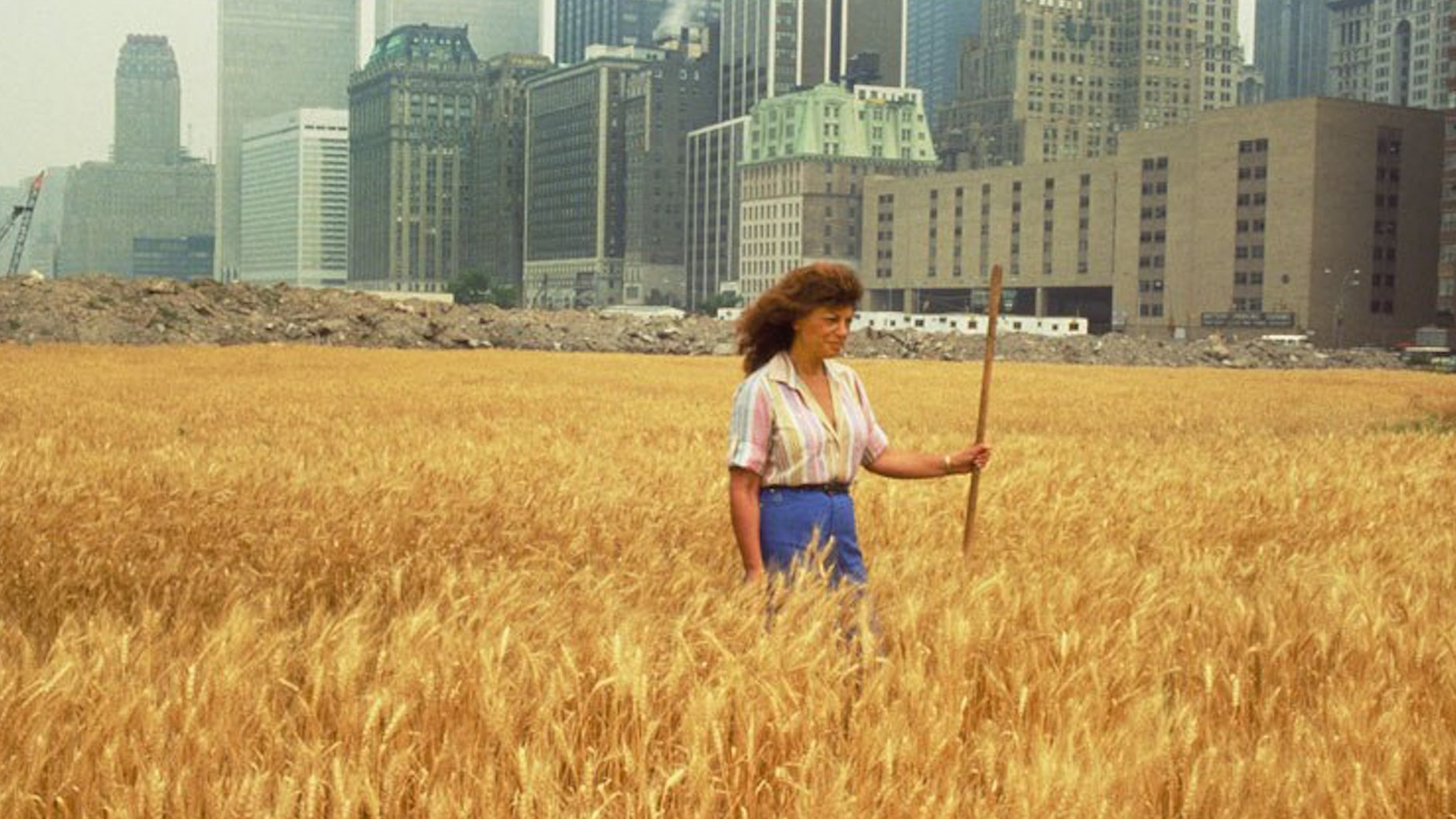Agnes Denes: Wheatfield–A Confrontation And Its Monumental Legacy

Despite the permanence of her practice—raising hills; planting woodland; burying time-capsules—Agnes Denes’s most enduring legacy might be her most ephemeral work: Wheatfield – A Confrontation (1982). The installation took place in New York’s downtown, in the shadow of a skyline synonymous with success. Such monumentalism is so immutably infallible that we cannot conceive of its demise. A shrine to hegemony; it represents the pinnacle of human progress. Yet, by planting an innocuous field of wheat at the feet of the World Trade Centre, Denes reminded us of the fragility upon which this world is built. The installation lasted a mere four months, from its planting in May to its harvest in August, yet its legacy still resonates four decades later.